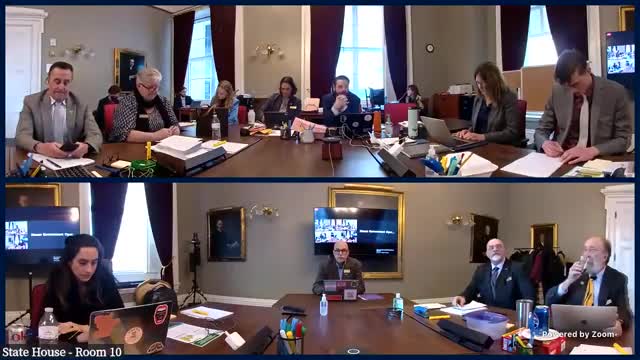Rep. Troy Hickrick introduces H.22 to clarify public access to severance and benefit extensions
Get AI-powered insights, summaries, and transcripts
Subscribe
Summary
Representative Troy Hickrick told the Government Operations & Military Affairs Committee that H.22 would clarify that extensions of salary and benefits paid to public employees are public records; legislative counsel said existing law requires a case-by-case balancing of privacy and public interest under the Public Records Act.
Representative Troy Hickrick of Burlington introduced H.22 Friday to the Government Operations & Military Affairs Committee, saying the bill would clarify that extensions of salary and benefits paid to public employees — commonly described as severance packages — are public records subject to disclosure.
The bill, Hickrick said, grew out of a June situation at the University of Vermont in which several staff members learned they were no longer employed and, he said, received short-term severance assistance; Hickrick said his public-records requests for the terms of those severance arrangements were denied. He said H.22 would make clear that “an extension of salary, an extension of benefits should be considered … salary and benefits” and therefore part of the public record.
Hickrick told committee members he developed the idea while working with UVM Staff United and that the proposal is intended to address equity concerns: lower-paid employees who lose work immediately may lack the financial buffer or legal resources available to higher-paid employees. He said he does not have statewide data on how often such severance arrangements occur and described the number involved in his instance as “a handful.”
Tucker Anderson, legislative counsel, gave committee members a legal overview of the Public Records Act and the personnel exemption in 1 V.S.A. § 317(c). Anderson explained that the statute and court interpretation require records officers to balance an individual employee’s privacy interests against the public’s interest in disclosure and that the law has been amended repeatedly to add specific exemptions. He said the personnel exemption is fact-specific and can result in full-record withholdings or targeted redactions depending on the circumstances; he also noted that the state publishes employee salary data through an open data portal.
Anderson cited case law that shaped the “embarrassment, disgrace, harassment” standard used in applying personnel exemptions and said the statute’s structure is partly modeled on federal Freedom of Information Act personnel exemptions. He told the committee that, in practice, personal contact information and other personally identifiable data is commonly withheld to prevent harassment. “This is typically applied to prevent harassment,” Anderson said.
Committee members asked procedural questions about the history and scope of the statutory exemptions and suggested counsel provide a deeper review of 1 V.S.A. § 317(c) and related precedent. No formal action or vote on H.22 occurred; the committee scheduled further review and counsel said he would walk the committee through the statutory history and application in a future meeting.
The committee record shows the introductory discussion and the request for follow-up; Hickrick said he hoped the measure would draw bipartisan support and described it as a straightforward, labor-friendly amendment to clarify public-records obligations.
